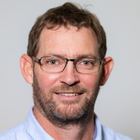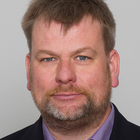Don’t blame Islam for the murders in Paris
Loewe, Markus / Annabelle Houdret / Mark FurnessThe Current Column (2015)
Bonn: German Development Institute / Deutsches Institut für Entwicklungspolitik (DIE) (The Current Column of 21 January 2015)
Bonn, 21 January 2015. 17 people were murdered in Paris on 7 January in an act of cowardice: eight staff and two visitors at the editorial offices of the satirical magazine Charlie Hebdo, three police officers, and in a separate attack four customers at a kosher supermarket (the latter are unfortunately often forgotten!). The murders triggered an outpouring of grief, anger and fear. They also raised the risk that our reflections become clouded by misperceptions, even as we identify with the victims.
This is not the fault of Islam! It is not even the fault of Islamism. The Paris killers misused a crude interpretation of Islam to justify their crimes, and other radical ideologies could just as easily have been exploited. The decisive question is why the perpetrators were receptive to that ideology in the first place. It is indeed true that in all corners of the world banal and radical interpretations of Islam are drawing young men - and increasingly also women - under their spell, in the same way that fascism or communism did in their day. However, the root causes of radicalism lie primarily in the respective countries concerned: in France, in Germany, in Syria, in Nigeria.
As in Germany, the increasing attractiveness of Islamism in France is deeply rooted in the unsatisfactory integration of migrants, which has resulted in a lack of opportunities and disorientation. People with a migration background are ostensibly better integrated in France than in Germany: nearly all speak good French, they have better opportunities in the education system and are present in public offices and in the media. However, many school-leavers have poor prospects of getting a well-paid job if their name is Ahmed and they come from certain suburbs on the outskirts of big French cities. The Paris killers came from exactly this milieu.
The end result is that many migrants lack a sense of orientation. In many families the language and traditional values of the old country are scarcely passed on to the children, while the values prevailing in the host country also fail to convince when racial discrimination and hostility are experienced on a daily basis. As a result, young people feel alienated, as if they belong neither here nor there. In this environment the hate preachers find fertile ground: they offer easy answers, clear structures and specific instructions, as well as recognition and acceptance as part of a “new family” – particularly for martyrs, who are no longer required to think for themselves as their decisions are made for them.
If further attacks are to be prevented in the future, it is important – in both Germany and France – not to simply pass stricter laws and increase security, but to instead improve education and access to information in communities with migration backgrounds, to improve individual career prospects and to support greater mutual respect and understanding. We cannot allow our core democratic values – freedom of the press, equal rights for all, tolerance and trust-based coexistence – to be destroyed by a handful of extremists, or they will have achieved what they set out to do. Furthermore, Western societies must demonstrate in the practice that liberal democracy is a better system than the totalitarianism of Islamic extremists – for all of society, including for the Islamists themselves. They should be shown that a life of self-determination is better than a life of uncritical obedience to firebrand preachers and ideologies.
A wave of anti-Islamism across Europe would be the worst thing that could happen. Above all, this would play into the hands of the Front National in France and Pegida, the NPD, the AfD and others in Germany. This could easily turn ugly, leading to the unnecessary provocation of Muslims. If democrats are not careful, there is a risk that Pegida and the Islamists will whip up extremist emotions on both sides.
One thing applies across the board: hostility and fear rise when we know too little about one another. A recent study in Hamburg showed that knowledge of the Koran led to a significant reduction in preconceptions about Islam. Beyond their Turkish barber and Arab shawarma vendor, most Germans have little contact with migrants from Islamic countries. Many cannot grasp the concept of a woman who freely chooses to wear a headscarf yet is well educated and "wears the trousers" at home. Conversely, for some traditional Muslims it is inconceivable that fifteen-year-old girls who spend their nights dancing and drinking alcohol do not end up turning tricks on the street corner, but become doctors or lawyers.
At the international level, more attention should be given to countering the successes of Islamic State (IS) in Syria and Iraq. The mere fact that the mighty West has not managed to effectively curtail IS has been a big factor in its attractiveness to disaffected Muslims worldwide. The first significant setback for IS could result in this spell being broken.



